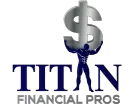How to Rip Off the Rich and Make Yourself Wealthy
Why not use the power of leverage, and use other people’s money to help you grow wealthy, rich and financially independent? In this day and age of uncertain pension plans, rising unemployment, and a general feeling that however hard you work, doesn’t it amaze you that your bills just somehow seem to keep pace with your earnings?
Want a solution? Then use Other People’s Money to make yours!
So, how does this work then, and how can it make you wealthy?
Let’s use a real life example. A while ago, Mike and Jon purchased an investment property each in Middlesbrough. Mike paid for it out of his savings and Jon paid for it using ‘Other People’s Money’.
Mike is not a risk taker. A great guy, but he likes to take everything very carefully without taking any risks. So he thought, by paying cash for his property, he was minimizing his risk, as he would not have to be dependent on tenant incomes to meet his repayments. But, he was not trying to WIN, and unless you at least try to win, you will, by definition, lose!
So lets examine these two investments side by side – Mike with his cash deal, and Jon with his ‘Using Other People’s Money’ deal.
Mike drew his $100,000 out of his high interest savings account (where it was making around 5% per year anyway), and luckily got a tenant in place the day after he completed. So from Day 1 he was earning some $500 a month from his investment.
Now Jon, he borrowed 85% of the money to purchase his apartment, which was going to cost him some $430 a month with an interest only mortgage. And, as luck would have it, it took him two months before he got his first tenant, also at $500 per month just like Mike’s tenant.
So, in the first year, Mike earned $6,000, which, after tax, generated him around $3,600 in his pocket, as he had no outgoings such as a mortgage to offset his tax liability.
Now for Jon, as he had a two month ‘void’ period with no tenant, his income from rent was just $5,000. Now, as he was paying $5,160 a year in his mortgage, he had no tax liability, but looked like he lost $160 in revenue on balance. If he had had a full year’s tenancy, he would have actually made a surplus income of $840.
But now let’s look at the capital gains from both of them.
Mike, who was getting 5% in his high interest savings account with his $100,000, saw his property go up in value by around 10% last year. So he made double that in his property, and actually gained some $10,000 in equity in his property, or a 10% growth on his investment, using all of his own money.
Now Jon, being a tight-wad, and never likes parting with money, especially his own, also saw a 10% appreciation in the value of his property.
But look, as he had only used 15% of his money and 85% of other people’s money, his deposit of $15,000 had returned him $10,000, or a 67% increase on his investment!
If he had managed to get a deal where he only needed say 5% down payment, his $5,000 initial investment would now have returned him some $10,000, or a 200% increase in his capital.
What does this mean? Well, if Mike wanted to buy another 9 houses, making a portfolio of 10 such houses, he would have to use (if he had it) another $900,000 of his own cash, or basically ONE MILLION dollars of cold hard cash that could have been earning at least 5% in a high interest savings account.
Well OK, if Mike had bought another 10 houses, and they were all fully tenanted, he would have generated an income stream after tax of around $36,000 per year, or a 3.6% return on his investment. The return on his capital would have been $100,000, or 10%.
Now suppose Jon were to buy another 9 such properties, but this time, using a lot more of ‘Other Peoples’ money?
Well, he would have had to invest roughly $50,000 of his own money, alongside $950,000 of other people’s money.
His net revenue income would have been around $8,400, but by the properties all increasing in value by some 10%, his $50,000 would have generated him close to £100,000 in increased equity, or about a 200% return on his investment.
After only 3 years, he could probably sell say four of those properties, and assume the growth was 10%, 5%, 5% respectively, and then excluding his deposits, he could have withdrawn some $85,100 from the deal, to re-invest or to buy a few luxuries – but his choice – and still have equity in the region of $127,650 plus his deposits left in his other houses.
The important thing here to realize is that Jon has actually created this extra $85,000 in cash and the remaining $127,650 equity, mainly by the use of other people’s money!
Just think how much Mike could have made if he had invested his entire MILLION cash alongside 20 MILLION of other people’s money. It is enough to make you stop and think about it for a minute if nothing else!
These are just a few ideas to help you streamline your path to financial freedom but a lot of these can be applied to your business as well. Hopefully you found these helpful. If you would like to learn even more about how you can streamline the efficiency of your own business finances, then you are more than welcome to contact us and we will take a look at your unique situation and offer some sensible solutions that would work best for you!
“TITAN Financial Pros provide an informational service only and are not responsible for any investments made applying this information. The results described are not distinctive and are not guarantees of future income. Any assumption contains risk and is 100% the responsibility of the individual to assess the risks/rewards involved. We bear no liability assumed or implied for your application of the information shared from this content. This information is for educational and entertainment purposes only.”
Is your business losing money?
Click the button below to get our FREE report on the 5 Most Common Ways Businesses Lose Money and more importantly,
HOW YOU CAN FIX THEM!



